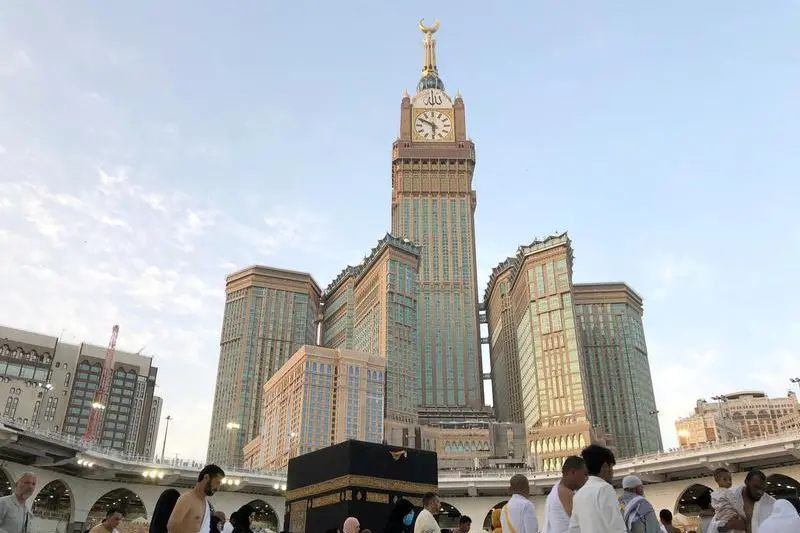PHOTO
MAKKAH: The director of the Zamzam Studies and Research Center (ZSRC) said its geologists are studying the geological structure of the pedestrian bridges connected to Makkah’s Grand Mosque to ensure they do not affect the flow of groundwater.
Samer Schuman said work is being carried out to reduce the height of Jabal Al-Kaabah and Umm Al-Qura roads, which lead to the Grand Mosque, to ensure they do not affect the Ibrahim Valley Basin, which feeds the Zamzam well.
He added that geologists are cooperating with the project management team at the Finance Ministry in Makkah, as well as with specialized companies and offices, to process data collected on the hydrological system, geological features, and hydraulic properties of the sediment of the valleys and rocks at the site.
“The ZSRC employs advanced digital modeling technology to obtain an interactive 3D image that helps understand the interrelationship between the foundations of these projects and the movement of groundwater at the site,” he said.
“This helps reduce the negative impacts on the hydrogeological system that may appear in some sites, in addition to neutralizing the cumulative effect of these impacts on the resources feeding into the Zamzam well,” he added.
“This will be achieved by taking the most successful precautionary measures that can be implemented on a site-by-site basis.”
Copyright: Arab News © 2019 All rights reserved. Provided by SyndiGate Media Inc. (Syndigate.info).





















